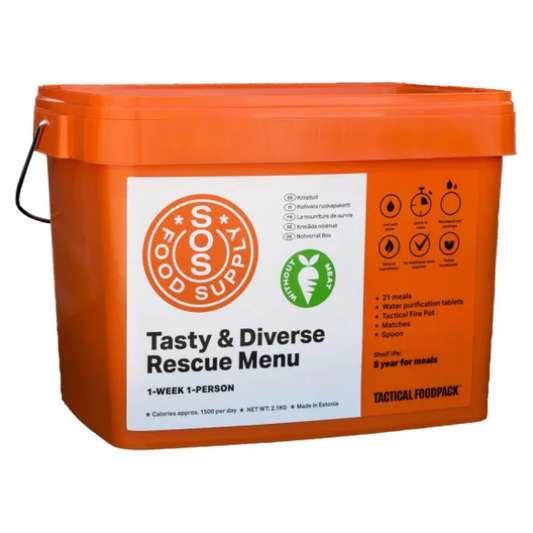-
Water jug for drinking water
Regular price From 55,00 DKKRegular priceUnit price / per127,00 DKKSale price From 55,00 DKKSale -
Katadyn - pocket filter vandrensning (2024 version)
Regular price 2.497,00 DKKRegular priceUnit price / per -
Water purification losses
Regular price 223,00 DKKRegular priceUnit price / per -
Field knife
Regular price 171,95 DKKRegular priceUnit price / per -
Water filter LifeStraw straw - new version
Regular price 315,00 DKKRegular priceUnit price / per -
Kløvekniv/spånkniv
Regular price 995,00 DKKRegular priceUnit price / per -
 Sold out
Sold outJOD til atomudykker kaliumjodide
Regular price 0,00 DKKRegular priceUnit price / per -
Origins Water Filter – 0.1 Micron
Regular price 398,00 DKKRegular priceUnit price / per -
Kupilka 55 / 21 Spisesæt: En Miljøvenlig Løsning til Udendørs Eventyr
Regular price 347,00 DKKRegular priceUnit price / per -
Fiskenet til søer og vandløb i høj kvalitet
Regular price 849,00 DKKRegular priceUnit price / per -
Ax Wilderness 30cm
Regular price 135,95 DKKRegular priceUnit price / per -
Fishing rod and fishing equipment
Regular price From 50,00 DKKRegular priceUnit price / per -
Gas Burner
Regular price 139,00 DKKRegular priceUnit price / per -
Storm kitchen
Regular price 585,00 DKKRegular priceUnit price / per -
Rescue menu 21 dishes Vegetarian Weekpack SOS Feltration 9317 Kcal
Regular price 1.799,00 DKKRegular priceUnit price / per -
Rescue menu 21 dishes best before 2032
Regular price 1.524,95 DKKRegular priceUnit price / per -
Survival kit in bag
Regular price 610,95 DKKRegular priceUnit price / per -
Field cutlery, nut
Regular price 65,95 DKKRegular priceUnit price / per
Collection: Diet and preparation
Emergency Preparation: Food and Water Supply during Disasters
When a disaster strikes, access to food and water becomes essential for survival. Being prepared with an emergency preparedness plan that includes sufficient supplies of food and water for at least a week can be the difference between comfort and chaos in an emergency. Here are some important aspects to consider regarding diet and emergency preparedness:
-
Food supplies: Planning an emergency supply of non-perishable food is essential. Dried or canned foods such as beans, rice, pasta, preserves, nuts, and fruit mixes are good choices because they have a long shelf life and require minimal preparation. Also remember to include energy bars and meal bars that are easy to transport and eat on the go.
-
Water supply: An adequate water supply is essential for hydration and cooking. It is recommended to have at least one gallon (about 3.8 liters) of water per day. person per day for drinking water and extra for cooking and hygiene. Store water in safe containers or containers specially designed for long-term storage.
-
Dietary variety: Be sure to include a variety of foods in your emergency supply to ensure a balanced and nutritious diet. Consider including high-protein foods such as dried beans, canned fish and meat, and canned or canned fruits and vegetables.
-
Cooking Equipment: Keep appropriate cooking equipment such as a portable gas burner, camping oven or grill for cooking non-perishable foods. Also remember to bring kitchen utensils, cutlery and crockery to prepare and eat your meals.
-
Updating supplies: Regularly review your emergency food and water supplies to ensure they are up-to-date and in good condition. Replace stale food and refill water containers as needed to ensure you are always prepared for an emergency.
By having a solid emergency preparedness plan that includes enough supplies of food and water for a week, you can increase your chances of survival and comfort in the event of a disaster. Remember to plan ahead, store your supplies in a safe place, and be prepared to adapt to changing situations during an emergency.

























